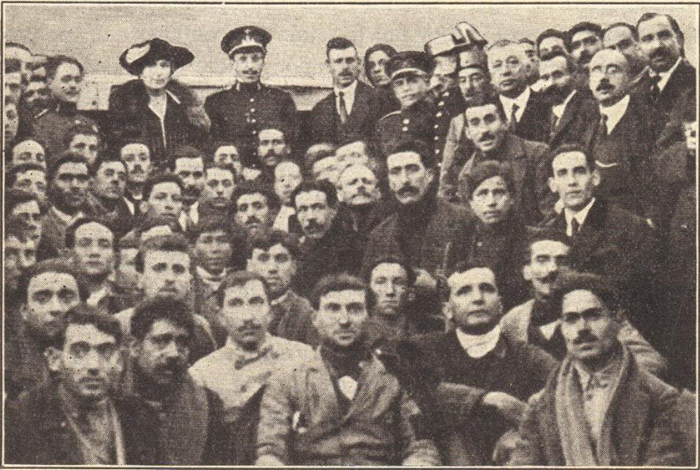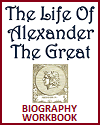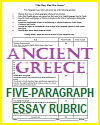Alfonso XIII and Queen Victoria of Spain, with workingmen. Photograph taken after the king had helped to settle a strike. Click here to enlarge this image.
Alfonso XIII of Spain played a significant role in setting the stage for fascism under Francisco Franco, even if indirectly. During his reign from 1886 to 1931, Alfonso supported a monarchy marked by political instability, corruption, and military influence in governance. In the early 1920s, he backed General Miguel Primo de Rivera's military dictatorship, which suspended constitutional rule and repressed dissent. This move undermined democratic institutions and weakened public faith in parliamentary government, creating fertile ground for authoritarian ideologies.
After Primo de Rivera's regime collapsed in 1930, Alfonso attempted to restore the monarchy, but growing public opposition and support for a republic forced him into exile in 1931, leading to the establishment of the Second Spanish Republic. The Republic soon faced intense internal divisions between conservatives, liberals, and leftist groups. Many monarchists and conservatives, disillusioned with the Republic, began to align themselves with emerging far-right movements, including Franco's Nationalists.
Alfonso never returned to power but supported Franco during the Spanish Civil War (1936-1939), viewing him as a potential restorer of order and tradition. Though Franco never reinstated the monarchy during his lifetime, Alfonso XIII's actions and alliances contributed to the collapse of democracy in Spain and the rise of fascism under Franco's dictatorship.
|





















































